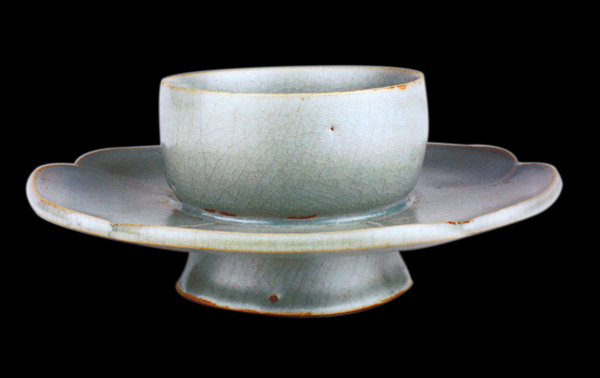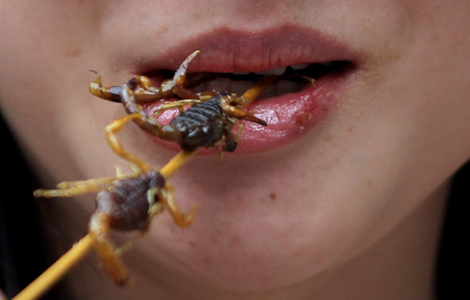
|
 |
|
The front side of a Northern-Song flower-shaped cup holder from the Ru Kiln, on display in the British Museum. |
Qing Court artifact
A former chief editor of Collector Magazine, Deng Dingsan, raises another possibility by saying that the cup holder could be a product of the Guan Kiln, one of the five major ones, said to be in Henan province. Although its site, from the Northern Song Dynasty, has never been found, a Capital Museum researcher, Wang Chuncheng, and a Zhejiang University professor, Zhou Shaohua, agree that this possibility cannot be completely ruled out. It is just that further proof is needed.
Adding his own view, Li Yanjun, deputy head of the Culture Ministry's Art Assessment Committee, comments assuredly, "Nevertheless, this cup holder is a national treasure, there's no doubt."
The 62-year-old Mao, who made a bid for the cup holder on behalf of an entrepreneur friend, believes it is worth at least 10 times the closing price, for an even more exciting reason, albeit a guess, "This cup holder is most likely from the old collection of the Qing Court."
He goes on to say that, in one of the 12 Beauties paintings by court painters of the Yongzheng period (1678-1735) of the Qing Dynasty, a Ru Kiln cup holder resides on a curio shelf right behind the seated beauty.
"All the treasures painted by the royal painters had to have a real example in court," Mao says, "which means there must have been Ru Kiln cup holders kept in the Qing Court."
But, there is no similar Ru Kiln cup holder in either the Palace Museum in Beijing or the Palace Museum in Taipei.
Mao has three hypotheses: It was stolen by a eunuch or maid; it was taken as booty by the Eight-Power Allied Forces in the summer of 1900; or it was taken out by the last emperor, Aisin-Gioro Puyi (1906-67) himself, when he was expelled from the Palace in 1924.
"No matter what, the cup holder must be kept in China — we can't afford losing our national treasure again," Mao concludes.








